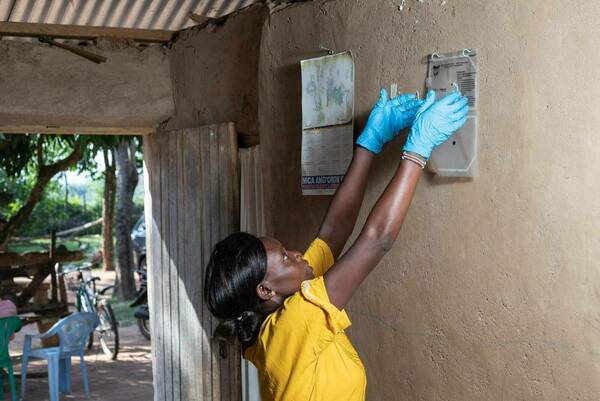International symposium in Hong Kong offers insights into the early Chinese empire

In December of 2024, Dr. Liang Cai, associate professor in Notre Dame’s department of history, helped organize an international symposium, welcoming over 20 scholars to Beijing Normal University-Hong Kong Baptist University United International College in Zhuhai, China.
Over the past 30 years, the discovery of numerous archaeologically excavated manuscripts has significantly advanced scholars’ understanding of the early Chinese empires, the fountainhead of Chinese civilization. This conference convened approximately ten scholars trained in the West and ten scholars trained in China to discuss these advancements. Titled “In Search of the Early Chinese Empires: the Dynamics between Excavated Manuscripts and Transmitted Texts,” the conference was co-hosted by the University of Notre Dame, Hong Kong Baptist University, and Beijing Normal University-Hong Kong Baptist University UIC. The two-day event featured a number of presentations by scholars from top international universities.
Professor Paul R. Goldin from the University of Pennsylvania delivered the keynote speech titled, “The Geography of the Rise of Qin.” His presentation argued that Qin's administration during the Warring States period was not unique in terms of its administrative structure, as other states had also implemented similar reforms. Therefore, Qin's success required considering other unique factors, including geography.

Tsinghua University Professor Hou Xudong gave a talk on “The Way of Communication between Prime Minister and Subordinate Officials in the Prime Minister's Office of the Western Han Dynasty as seen in Han Jiu Yi.” Dr. Wicky Wai Kit Tze of the Chinese University of Hong Kong gave a presentation titled, “Quantifying Accomplishments, Rewarding Performance—Military Bounties in Early Imperial China.” It examines the evolution of the military reward system from the Western Zhou Dynasty through to the Qin and Han Dynasties.
Dr. Cai Liang gave a presentation titled, “Absence of Talion and Tort Law in Early Imperial China (221 BCE-9 CE): How Body Politic Cancelled Corrective Justice.” Her talk explored how the law of retaliation ("eye for an eye") and compensation to victims held a significant position in Babylonian law, biblical law, and early Roman law. However, these principles were absent from the criminal regulations and practices of the Qin-Han legal system. This divergence can be understood through differing conceptions of the relationship between individuals and the state. In the Chinese context, the perspective that “the ruler is the heart, and the people are like the limbs” prevailed. Individuals were seen as anonymous components of a unified whole, with their personal interests and existence subordinated to the welfare of the empire. Therefore, punishments for offenders were designed to compensate the empire, not the individual.
The exchange of ideas and methodologies in historical studies that this conference brought forth helped to build an important bridge between East and West. Thanks to the efforts of Dr. Liang Cai and other organizers, the event was a success and enhanced Notre Dame's international reputation and engagement, furthering the University’s aspiration to become a leading global, multicultural, and multilingual institution.
Learn more about Notre Dame’s presence in China by visiting the Notre Dame Hong Kong and Notre Dame Beijing websites.
Originally published by at hongkong.nd.edu on January 27, 2025.
Latest Research
- NSF Cyber SMART’s fall meeting shapes fifth year of project, legacy and future plans, and adds new memberThe U.S. National Science Foundation (NSF) Cyber SMART center gathered for its fall meeting on the University of Notre Dame campus this September. The meeting served as a checkpoint with progress reports and new projects from research leads and students…
- Slavic and Eurasian studies professor wins Humboldt fellowship to research how Russia’s religious past shapes its presentWhen Russia invaded Ukraine on Feb. 24, 2022, Sean Griffin realized his second book needed a new title. Griffin, an associate professor in the University of Notre Dame’s Department of…
- Notre Dame’s R.I.S.E. AI Conference builds interdisciplinary collaboration to inform human-centered artificial intelligenceAs artificial intelligence (AI) transforms nearly every sector of society — from healthcare and education to governance and global development — a critical question emerges: How can we conscientiously design and deploy these powerful technologies to positively impact society? This…
- University of Notre Dame joins the Global Coalition of Ukrainian StudiesThe University of Notre Dame has joined the Global Coalition of Ukrainian Studies after signing a Memorandum of Cooperation (MOC), formalized on September 24, 2025, at the Ukrainian Institute of America in New York City. Notre Dame joined four other American…
- The University of Notre Dame’s Mendoza College of Business and Industry Labs team up to inspire national security manufacturing competitiveness in the regionThe South Bend - Elkhart Region is full of manufacturing companies that are poised to grow, and Executive Master of Business Administration (EMBA) and Master of Business Administration (MBA) students at the University of Notre Dame are finding innovative ways to contribute to that growth. Earlier…
- Notre Dame research informs WHO conditional recommendation for spatial repellents in malaria vector controlThe World Health Organization (WHO) recently announced a “conditional recommendation” for spatial emanators, also known as “spatial repellents,” in the fight against malaria. This key determination was informed by spatial repellent studies that included the Advancing Evidence for the Global Implementation of Spatial Repellents (AEGIS) Project in Kenya, led by the University of Notre Dame and funded by Unitaid. The findings from this particular study were recently published in The Lancet.













